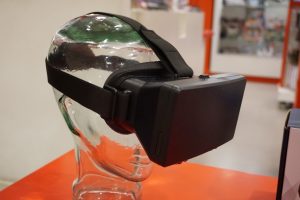Just a few days ago, ObeyProximity posted this blogpost of 10 reasons why retailers can’t ignore iBeacon anymore.
Which got me thinking: if beacons are so hyped in the retail industry, how about other industries?
And here we have it, six reasons why construction companies should start thinking about beacons.
1. Indoors reliability
Most construction projects operate outside the reach of GPS – within buildings, underground, or even underwater.
Beacons, on the other hand, is specifically developed for indoor usage, with higher accuracy (the highest being within radius of centimeters!). When managing these projects, team leaders will usually need to keep track of many things at once, which makes accuracy a significant pain point and beacons a well-fitted solution.
2. Scalability
Beacons – unlike enormous mapping solutions – are cheap, mobile and easily set up.
At Estimote, one of the leading beacon manufacturers (others being Gimbal and Kontakt, to name a few), a pack of 3 heavy-duty beacons cost $99, with 7 years of battery life each, and sensors of motion, temperature, light, and magnetic.
To bring it to scale, recently, the city of Columbus, Georgia employed a fleet of 1250 to cover the whole city, opening a world of opportunities and applications for local businesses and residents. The full announcement video can be found here.
3. Relevance
With so many things to keep track of, inspectors and managers can be easily distracted from context, making their jobs so much harder. The use of beacons combined with cloud data storage technology provides an easy way out.
For instance, JBKnowledge developed a powerful platform named “Buildstream”, with “job site telemetry, worker tracking, and progress photos.” This gives inspectors an on-time, relevant overview of the construction site, and hence saves valuable resources.
Combined with virtual reality, beacons have near infinite capabilities in the construction industry.
4. Reusability
What’s exceptional about beacon is how they can be reused for many different applications. After the initial installation of the beacon fleet in the construction site, beacon-enabled applications can access these Bluetooth transmitters and activate different response.
Using iBeacon, Replicon provides a time-tracking solution, while SticknFind provides an asset tracking solution. When a construction company start employing beacons, they can use both these apps and take advantage of all this data to optimize and greatly improve the process.
5. Growth
The fact that beacon technology is still in its young phase may discourage companies – especially large ones. However, that can also prove to be a worth-investing advantage.
With its recent release of Eddystone, Google joins the army of home-automation pioneers, along with Apple’s iBeacon, ZigBee and Z-Wave. All home appliances are getting more connected: here’s a list of best smart home gadgets of 2016 from Tomsguide.
If construction firms start grasping this new technology from now, they will have a great edge over competitors and attract more customers, especially in the growing trends of green energy and Internet of Things.
6. Security
Before the release of Bluetooth 4.0, security has been a significant turn-off for businesses. As privacy is increasingly a concern for both end-users and policy-makers, the big security protocol update in Bluetooth 4.0 relieved many businesses and pushed them further down the line of employing beacons in operations.
Construction company, with endless personal data to protect, now cannot cling on security reasons to ignore proximity technology anymore.
And with these, we also have reasons to believe in beacons as the ubiquitous technology of the IoT.




